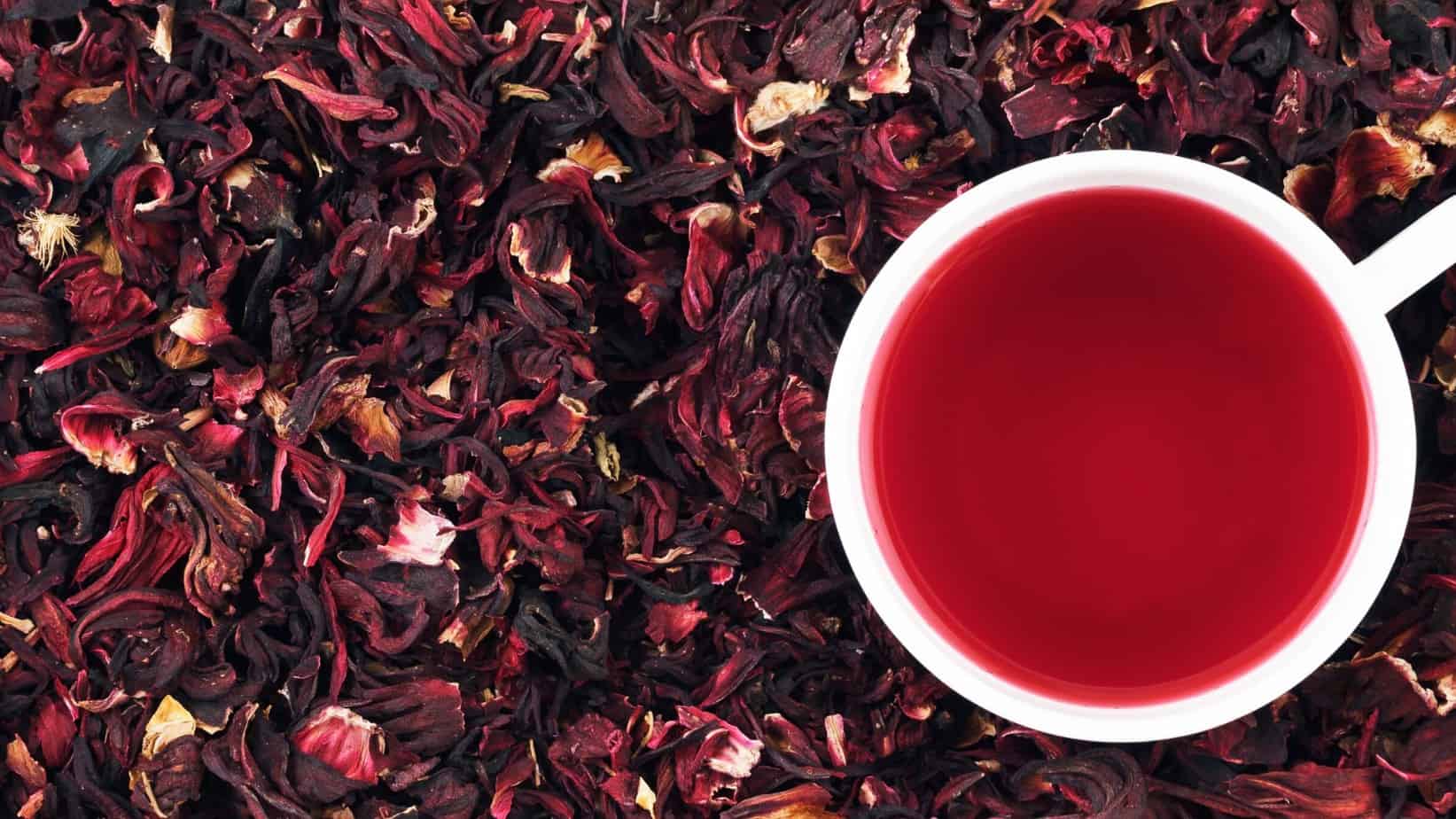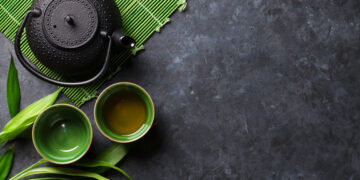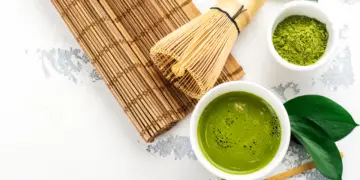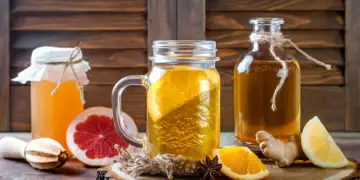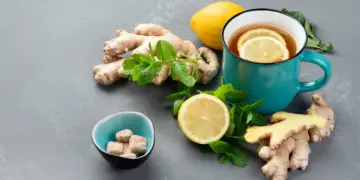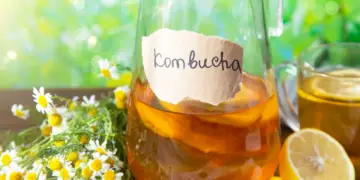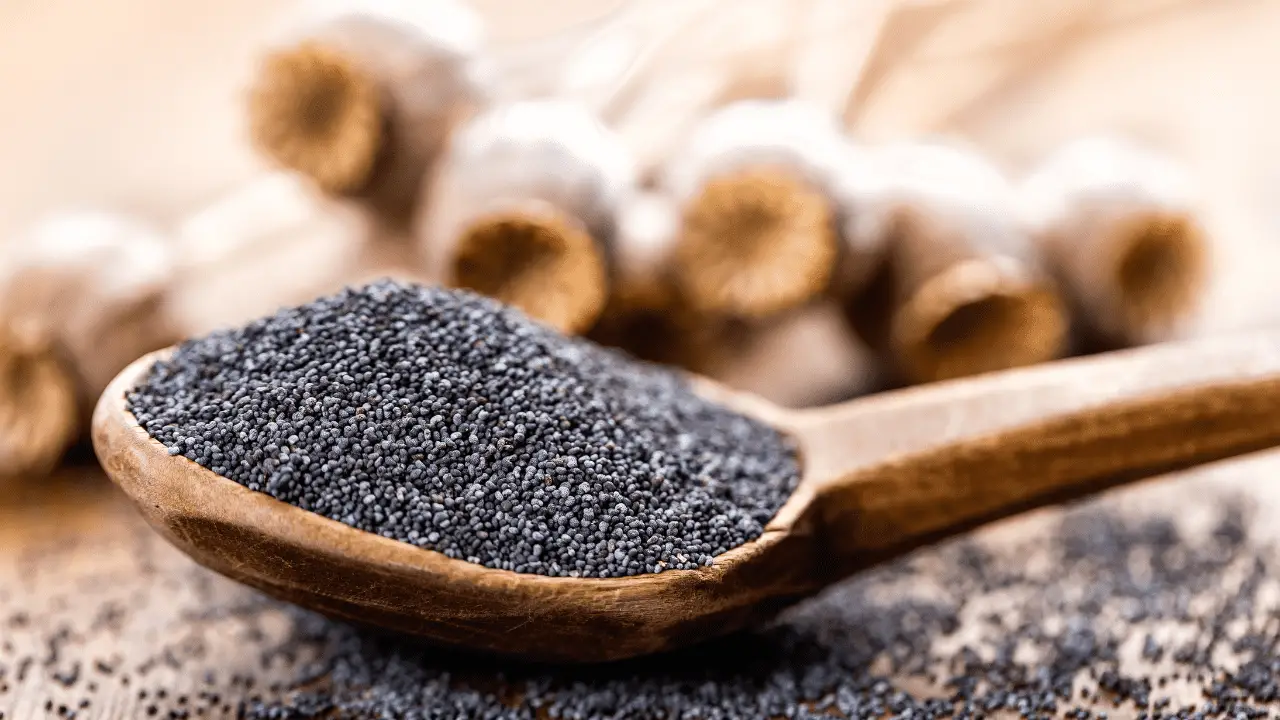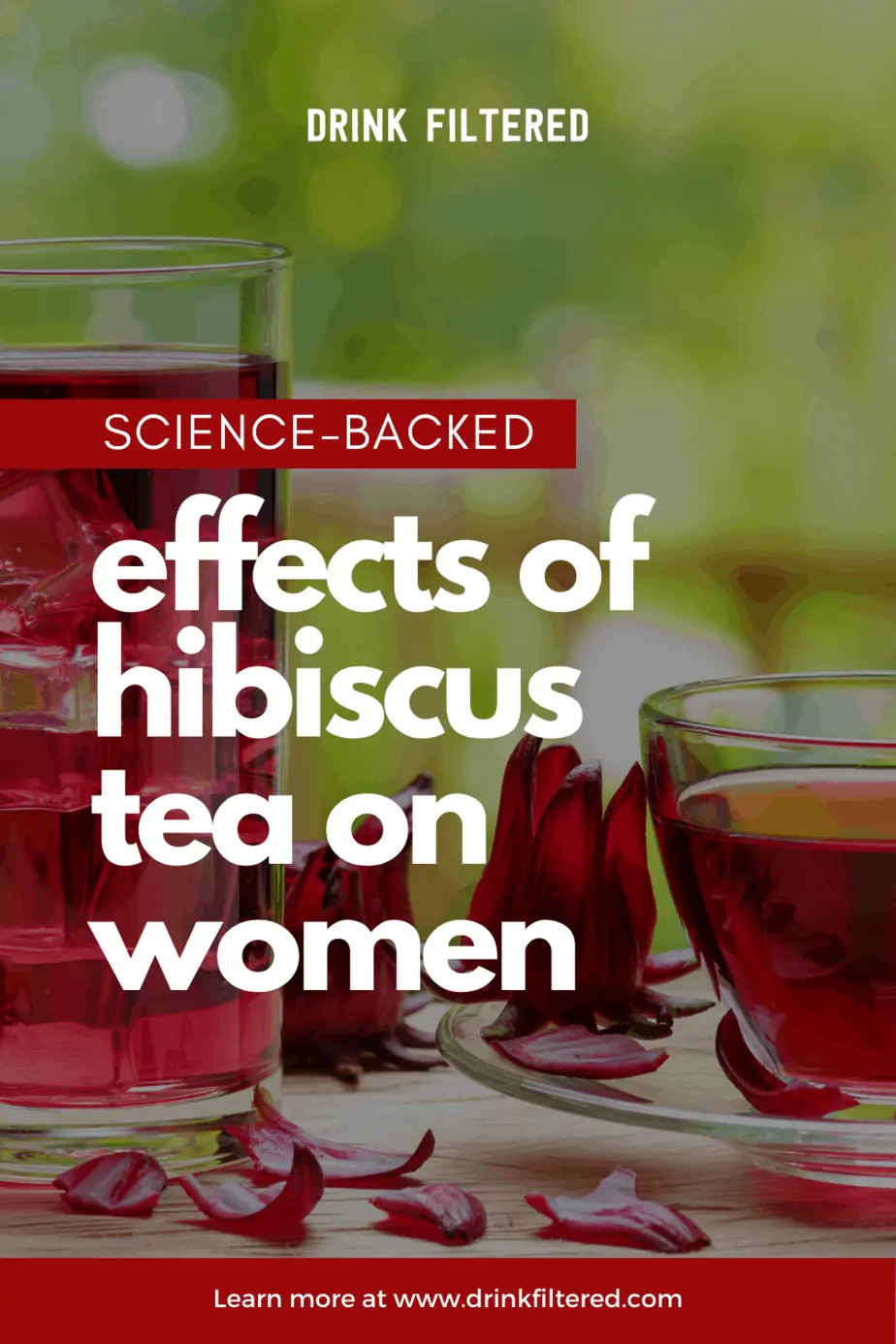The hibiscus flower has been used as an ancient health remedy in Chinese and Ayurvedic medicine for the past three centuries. This flower packs a powerful punch when it comes to health. Potential benefits include the ability to naturally strengthen the immune system, promote weight loss, maintain cardiovascular health, and of course, protect against inflammatory conditions as a result of its inherent antioxidant properties.
For women, the positives are even more pronounced. Studies are beginning to show a positive correlation between hibiscus flower use and women’s reproductive health. In this article, we delve into those benefits and find out which are myths and which have the backing of modern-day science.
- Science-Backed Gynecological Effects of Hibiscus Tea
- Is Hibiscus Tea Safe for Pregnant Women?
- Can Hibscus Be Helpful For PCOS?
- Does Hibiscus Help With Uterine Fibroid?
- Can Hibiscus Induce A Period?
- Can Hibiscus Reduce Heavy Bleeding?
- How to Prepare The Perfect Cup Of Hibiscus Tea
- Side-Effects of Hibiscus Tea
- Conclusion
Science-Backed Gynecological Effects of Hibiscus Tea
Hibiscus Tea Can Help Relieve Menstrual Cramps
Menstrual cramps occur because of the release of prostaglandins, hormone-like substances, which cause contractions of the smooth muscles of the uterus in order to help shed its lining. These contractions ultimately result in a reduction of the blood supply to the uterus. It is this process that can lead to cramps. Generally, women that have higher levels of prostaglandins will experience more severe cramps.
A recent study suggests that hibiscus may have smooth muscle relaxant and analgesic properties. This effect was then supported in a 2007 study in which hibiscus extract was shown to cause uterine and bladder relaxation in rats. The results of this study were of impact as they imply that hibiscus could be a natural alternative to medications for period cramps. It is, however, important to add that it is assumed that these properties would not be as strong when compared to currently available medications.
Hibiscus Tea Can Help With Menopausal Symptoms
Hibiscus is a homeopathic remedy that has been used historically for managing menopausal symptoms. Menopause, a natural part of aging in women, occurs as a result of low estrogen levels in the body. Hibiscus, exhibits an estrogenic effect which is attributed to the phytoestrogen (plant-based estrogen) that it contains. Phytoestrogens, bind to the estrogenic receptors in the body and mimic the effects of estrogen which can help ease the uncomfortable symptoms that women often report during menopause.
Although taking hibiscus was found to be effective in human trials, more research is needed to establish safe consumption and dosage recommendations. Additionally, further research will also help in determining whether hibiscus can be a replacement for hormonal therapy.
Hibiscus Tea Can Act As A Natural Contraceptive
Hibiscus is observed to have contraceptive effects on both males and females, making it a possible natural contraceptive. However, despite the demonstrated contraceptive effect, it is not recommended to depend on hibiscus tea for contraception. While these effects could be helpful to couples who are not looking to get pregnant, the opposite is true for couples trying to conceive. In short, avoid hibiscus tea if you are trying to conceive.
A study on rats suggested that a dose of 400 mg/kg prevented implantation of the zygote (fertilized egg) in the uterus. At lower doses, 125 to 250 mg/kg, hibiscus prevented ovulation and also reduced sperm production.
Is Hibiscus Tea Safe for Pregnant Women?
No, hibiscus may not be quite safe for pregnant women. In a study conducted on mice, hibiscus caused a fetal loss in 92% of cases when 1 gm/kg of body weight per day was consumed on days 5-8 of gestation. The termination of pregnancy was associated with lower progesterone levels (the hormone that supports pregnancy) and increased uterine acid phosphatase levels in the body. Although the study was done in mice, it is advised to consume any hibiscus-containing products while pregnant.
Can Hibscus Be Helpful For PCOS?
So far there is no identified link between hibiscus and the management of PCOS. However, tea, especially green tea, is linked with the improvement of symptoms in patients with PCOS. In PCOS, there are increased levels of several oxidative elements in the blood. Green tea, which functions as a strong antioxidant, helps reduce the levels of these abnormally-increased elements. Additionally, green tea helps us maintain body weight as well, improves the number of follicles in the ovaries, and improves insulin resistance.
Does Hibiscus Help With Uterine Fibroid?
Although hibiscus has not been identified in helping with the management of uterine fibroid, it has been found that green tea is effective in reducing the size of uterine fibroid and providing symptomatic relief as well. It reduces overall blood loss and, as a result, improves anemia. A serving of 800 mg of green tea extract for 4 months was found to be effective in providing symptom relief. While it is not recommended to rely exclusively on tea for managing this condition, it can be used as a supportive measure.
Can Hibiscus Induce A Period?
It has been suggested that hibiscus induces menstrual bleeding or periods because of its emmenagogue properties, meaning that it increases the blood flow to the pelvic region including the uterus. This makes sense as Emmenagogues are capable of inducing menstrual flow. However, the emmenagogue properties are exhibited by the mucilage from the bark of the hibiscus plant, rather than the flower. It is therefore unlikely that hibiscus tea, which primarily contains hibiscus petals, would have this effect.
Can Hibiscus Reduce Heavy Bleeding?
Traditionally, hibiscus has been used for centuries for a variety of purposes, including reducing postpartum hemorrhage, inhibiting lactation, treating mastitis and uterine prolapse, and many other pregnancy-related conditions. But there is no scientific study, even on animals to back this claim.
How to Prepare The Perfect Cup Of Hibiscus Tea
You can very easily steep hibiscus tea at home. For this, you can use fresh hibiscus flower petals growing in your garden. If you don’t have a hibiscus plant at home, you can always get dried hibiscus petals from your nearest store or online. Fresh petals would be less concentrated when compared to dried petals, so more would be needed. Not all species of hibiscus are edible. Hibiscus sabdariffa is a species that can be used in the kitchen. Hibiscus acetosella is another species that is edible. Make sure to pay attention to which species you are buying when purchasing the dried petals.
If you choose to make the tea from fresh petals, you will need to do the following:
- Take one fully-bloomed hibiscus flower and separate the petals and rinse them clean.
- Boil the water, and then put the fresh petals or about 1 to 2 teaspoons of dried hibiscus in the water, and let it steep for 15 to 20 minutes. If you want it stronger, put more fresh or dried petals.
There is a wonderful YouTube video on this if you rather see how it is done:
You can also find pre-made teabags containing hibiscus, which some may prefer as this is often easier.
You can experiment with different amounts of hibiscus and find out how strong you want it. Hibiscus is tart; similar to cranberry, so you might want to start with the lowest dose possible and then increase as desired. You can add honey for sweetness, or add more flavoring agents like ginger and lemon to modify the taste and suit your preferences.
Side-Effects of Hibiscus Tea
Hibiscus tea is generally quite safe to drink. 3-4 cups of hibiscus tea is generally not harmful. But at a very high dose, it can cause some serious side effects.
- Liver toxicity: It was found in a study that very high consumption of hibiscus (more than 300mg/kg/day) for a period of 3 months caused liver toxicity. So, limit your hibiscus extract intake to moderate levels. Also, if you have severe liver disease, it would be best if you avoid it completely. For those with mild liver disease, it is advised that you consult your physician for recommendations.
- Might exaggerate gout: A very high amount of hibiscus consumption is also linked with increased serum uric acid levels, a substance that causes and exacerbates gout. However, a lower dose can actually help gout as the intake of 1.5 g per day has been shown to have a uricosuric effect, meaning that it supports the excretion of uric acid in urine.
- Might cause electrolyte disturbances: It was noted in some studies that hibiscus extract at small doses can lead to increased chloride levels in the serum and increased excretion of sodium. Although this effect was minimal with low doses of hibiscus, it would stand to reason that a higher degree of electrolyte disturbance would result from higher hibiscus intakes. However, more research is needed to say anything conclusively. Until more research is available, it is recommended to keep intake at moderate levels.
- Drug interactions: Hibiscus is known to cause interactions with certain drugs. For example: Hibiscus causes reduced excretion of hydrochlorothiazide (which can lead to toxicity). It also increases elimination of acetaminophen (Tylenol/paracetamol), rendering it less effective. Finally, It has been know to reduce the effectiveness of chloroquine, an anti-malarial drug. It is best to avoid drinking hibiscus tea if you are using any of these medications. Check with your doctor or Registered Dietitian for other potential drug interactions.
- Unwanted Caffeine : it is important to also be mindful of the side effects of tea in general. Tea contains caffeine which can cause and exaggerate anxiety, disturb your sleep, and cause gastric distress.
Conclusion
Hibiscus tea has some health benefits in general, as well as in women’s reproductive health specifically.
However, not many studies have been done to understand and support all the anecdotal claims made about this drink. Most of the scientific studies we have at the moment were done on rats and mice and not humans. The evidence of certain effects in these animal studies suggests that hibiscus tea needs to be consumed with caution in some cases, at least until further studies prove otherwise.
Special precautions should be taken by those trying to conceive and women who are pregnant. But otherwise, it is relatively safe in moderation and healthy to drink!

